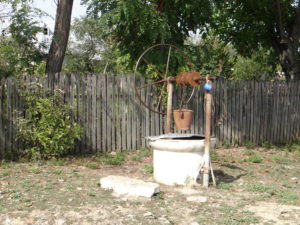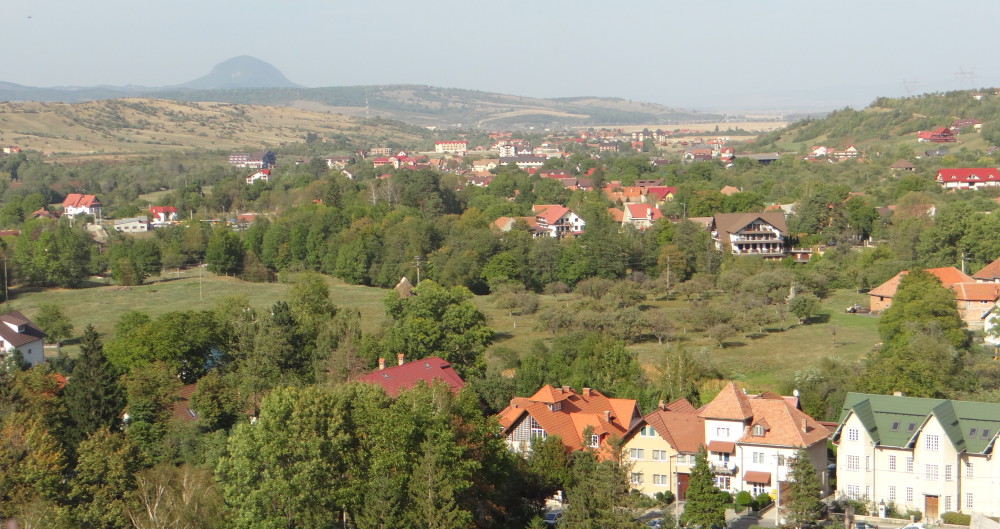 The simplest things in life can trigger a wave of memories long forgotten or buried deeply in the recesses of my mind – the scent of food, fresh baked bread, an exotic perfume, a melody, the crisp snowy air, the smell of smoke in autumn and a sudden thunderstorm.
The simplest things in life can trigger a wave of memories long forgotten or buried deeply in the recesses of my mind – the scent of food, fresh baked bread, an exotic perfume, a melody, the crisp snowy air, the smell of smoke in autumn and a sudden thunderstorm.
The steady rain for the past two days could have easily turned into feet of snow had the temperature not been above the forties. Hard rain drenched the woods into deeper shades of winter browns and greens and turned the trails into soggy miniature swamps so close to the river. It was a long overdue rain as both summer and winter have been quite dry.
Even in its dormant state, nature smelled alive and dense trees looked majestically strong. Without its coat of leaves, the woods allowed the river to peek and shine through its thick boughs. In the full moonlight, each tree appeared like a phantasmagorical giant with human features, casting long shadows in the drenched soil.
As a child, I’ve loved rain and its soothing thumping on the metal roof. Sheltered under Tataia’s shop awning, I was mesmerized by the rivers of fast water running in the muddy yard; everything in nature came alive. Tataia would answer any questions about the earth bursting with life, how clouds formed, why it rained, and how water nourished life.
I learned how to garden, how to water plants with carefully dug ditches that pulled the rain water away from direct contact with the fragile roots. He taught me first how to grow wheat and bean sprouts in a moist glass dish on the window sill in winter. He was truly my first biology and science teacher.
Lightning did not frighten me; the zig-zags of light were God’s hand drawing on the sky’s canvas. Rainbows were God’s palette, the colors that tinted nature and life. And thunder was God snapping his whip to make unseen heavenly horses run faster through the clouds.
When it rained, Mamaia had a reprieve from the farm chores. But she did not rest; she washed clothes by hand in a wooden tub carved from a tree. It was the same tub she used to bathe me in as a toddler. Her hands would turn red from scrubbing one item at a time in hot water and harsh, unpleasant smelling soap which was made with lye. And there was no lotion to soothe the redness of her small hands. Layers of skin would peel off painfully. Finding unscented lanolin to treat the cracked and burning skin was difficult.
On my wash day, the modern “chore” is to sort the laundry, pour a pre-measured cup of detergent into the washing machine, adjust the water setting and temperature, and let it do the scrubbing and washing for me. And the dryer replaces hours of hanging clothes on the line, bringing in off the line dry clothes stiff as a board in winter and smelling like wet dog. We never stop to think how much easier our lives are today and how many varieties of cheap lotions we have to soften our hands. I don’t think most people appreciate what a wonderful and easy existence they live.
Mamaia’s hands were magical. They raised six children, fed them, bathed them, and cloth-diapered them. Mamaia cooked and washed everything for six children, milked the cows, slopped the pig, and fed numerous chicken, ducks, and rabbits that Tataia bought from other farmers.
In her spare time, Mamaia was the village seamstress who made beautiful wedding dresses, church dresses, and practical every day clothes for her own children. She mended their clothes and pressed them with a heavy iron which could be filled with hot coals or placed on the stove to get hot. Sometimes there were slight brown lines left from the iron burning a favorite shirt but children still wore it.
Mamaia’s chores included putting away the vegetables from the garden that Tataia planted, weeded, and watered. She would stir a huge cast iron pot outside on a fire stoked with wood, turning pounds of tomatoes into a sauce preserved in jars for winter time. She pickled cucumbers, cauliflower, green peppers, red peppers, green tomatoes and preserved green beans in jars sealed with wax or corks covered in tar. Everything was stored in the cellar for winter.
Her prune marmalade and tart cherry preserves were delicious. Using sugar made from beets, she made sweet preserves from green plum tomatoes stuffed with walnuts. Regrettably, her recipes were never recorded before she passed away. We were too busy trying to survive or escape the communist harsh life to think about writing these recipes down for posterity.
To this day, when I want to cook something that my mom used to cook for us, it is impossible to replicate the recipe because she did everything from memory, just like Mamaia, a pinch of this, a pinch of that, no measuring cups in mom’s kitchen. Now that her memory is scrambled, I regret not having written her ingredients down and the number of pinches.
My mom smiles in her moments of clarity and tells me how hard she and her five siblings had to work to help their parents on the farm, how they had to give up too much education, and how they practically raised each other. Aunt Nicuta was Mamaia’s first child; Nicuta helped raise her brother, and then each child helped raise the next. They learned to grow up fast this way. Few of the girls actually extended their education past eighth grade or high school but the two boys went much further.
Rain is still coming down hard, drumming on the shingles; my eyes are taking in the soaked nature and bubbling mud but my mind is still wandering through my childhood years, flashing memories and images of my past, times when we, as children didn’t understand the vicissitudes of life, we were happy and felt loved no matter how poor our families were. It was another life, another world, long time ago.
ILEANA JOHNSON
American By Choice

Dear Eleana,
A wonderful article!
Thank you
Thank you, Raymond!